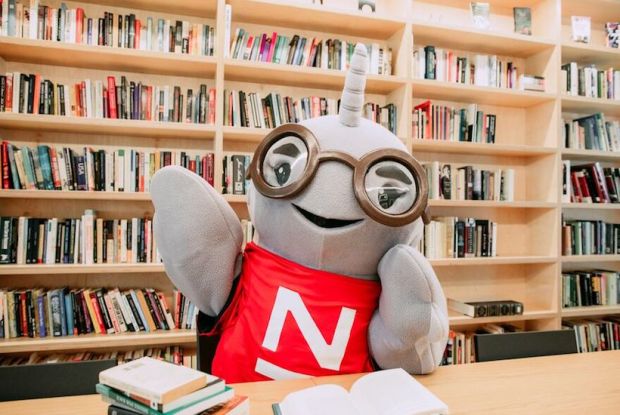Wokedom has a love affair with self-indulgent gobbledygook dressed up as meaning too deep for the ignorant masses to understand and no shortage of sycophantic courtiers who will attest to its beauty and truth rather than admit to the bare-arsed fraud of it all. Our first two stories this week feature the world of woke’s semantics gymnastics and the third brings you some more transmogrification. Enjoy – or despair. The choice is up to you.
Fight at the museum
Museums, which until now have comfortably straddled the worlds of history, science, arts and culture, have recently come in for a woke attack of the language variety which has some of its senior custodians fighting back, and rightly so.
The International Council of Museums (ICOM) currently defines a museum as “a nonprofit institution” that “acquires, conserves, researches, communicates, and exhibits the tangible and intangible heritage of humanity and its environment for the purposes of education, study, and enjoyment”, which would seem to capture it in a nutshell. But not so, according to Danish museum curator, Jette Sandahl, who headed a commission to create a new museum definition. Sandahl said that the current definition ‘does not speak the language of the twenty-first century’ and ignored the ‘demands of cultural democracy’, whatever they may be.
The committee’s parameters for coming up with a new definition were impenetrable enough, as were some of the more than 250 definitions proposed by member organisations. In another woke touch, though, those suggestions were all ignored in favour of Sandahl’s suggestion adopted by ICOM’s Executive Board. It’s a doozie:
Museums are democratising, inclusive and polyphonic spaces for critical dialogue about the pasts and the futures. Acknowledging and addressing the conflicts and challenges of the present, they hold artefacts and specimens in trust for society, safeguard diverse memories for future generations and guarantee equal rights and equal access to heritage for all people.
Museums are not for profit. They are participatory and transparent, and work in active partnership with and for diverse communities to collect, preserve, research, interpret, exhibit, and enhance understandings of the world, aiming to contribute to human dignity and social justice, global equality and planetary wellbeing.
In my book that scores a 10/10 for semantics gymnastics and buzzword overload, and it seems that plenty of people within the international museum community agree with me. Twenty-four national branches of ICOM and a number of international museum committees have petitioned for a postponement of the vote on the definition. Some of the comments accompanying the petition called the proposal ‘over-inflated verbiage’, ‘a statement of fashionable values, much too complicated and partly aberrant’ and lacking any mention of education. And the Museums Association’s own Twitter poll (take this for what it’s worth) shows a marked lack of enthusiasm for the hip, socially just and inclusive definition, too. So it’s probably a shoo-in. The vote is supposed to take place on 7 September at ICOM’s extraordinary general assembly in Kyoto.
When is a criminal not a criminal?
When he/she/ze is a ‘formerly incarcerated person’ or a ‘returning resident’, that’s when.
The San Francisco Board of Supervisors, that glorious breeding ground for woke policies that have transformed the city into a squalid, crime-ridden, faeces-littered, drugged up paradise, has decided that the language describing criminals (sorry, ‘justice-involved persons’) should be softened to help change people’s views about them. The new guidelines state that previous terminology only serves to:
[O]bstruct and separate people from society and make the institutionalization of racism and supremacy appear normal … Inaccurate information, unfounded assumptions, generalizations and other negative predispositions associated with justice-involved individuals create societal stigmas, attitudinal barriers and continued negative stereotypes.
I do hope that statement isn’t drawing any conclusions about the ethnicity of the perpetrators of crime (or should that be ‘the common cultural traditions of a social group that has been impacted by peccadillos that might draw community disfavour’?) in San Francisco.
What you previously recognized as a juvenile delinquent will now be a ‘young person impacted by the juvenile justice system’, as if the system was something that just happened to run into them, and drug addicts will morph into ‘persons with a history of substance abuse’.
My personal favourite is referring to released prisoners as ‘returning residents’ as though they’re just back from a holiday stint in the Bahamas but without the suntan. I’m sure that all this person-first language will make a huge difference to San Francisco’s rocketing crime rate.
Edmo’s world
Just when you thought the world couldn’t take any more trans-formation, three judges from the 9th Circuit Court of Appeal stepped in last week with a court order forcing the State of Idaho to pay for the male-to-female gender reassignment surgery of inmate Andre Edmo, who ‘identifies’ as female. Edmo was sentenced to 10 years in prison in 2012 for sexually assaulting a 15-year-old boy. Never mind that medical professionals who have worked with the sex offender disagree with the panel’s assessment that the surgery is ‘necessary’.
Edmo sued the state of Idaho in 2017, saying that the state’s refusal to pay the required $20,000 to $30,000 for the surgery constituted ‘cruel and unusual punishment’ in violation of the Eighth Amendment. A Federal District Judge ruled in favour of Edmo and the state appealed, leading to last week’s Circuit Court decision.
In response to the latest decision Idaho Governor Brad Little said:
We cannot divert critical public dollars away from the higher priorities of keeping the public safe and rehabilitating offenders. The hardworking taxpayers of Idaho should not be forced to pay for a convicted sex offender’s gender reassignment surgery when it is contrary to the medical opinions of the treating physician and multiple mental health professionals.
It’s unclear yet whether the state will appeal the decision. So watch this space, or you could watch the introduction to Elmo’s World, the Sesame Street offshoot show for kids. That annoying furry, red, falsetto-voiced muppet’s song makes about as much sense as the court’s decision. Lalalala, lalalala, la la land.
Got something to add? Join the discussion and comment below.
Got something to add? Join the discussion and comment below.
Get 10 issues for just $10
Subscribe to The Spectator Australia today for the next 10 magazine issues, plus full online access, for just $10.


























Comments
Don't miss out
Join the conversation with other Spectator Australia readers. Subscribe to leave a comment.
SUBSCRIBEAlready a subscriber? Log in